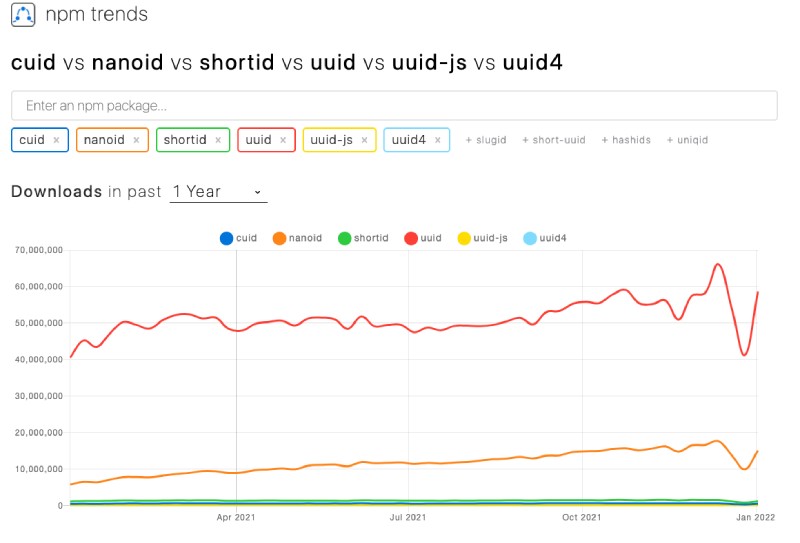


There is a workaround which is to add the same version of uuid that cubejs requires as a peer dependency and a dev dependency, and then use '^uuid$': require.resolve('uuid') within the nfig moduleNameMapper section. This appears to be fixed in version 9+ of uuid. (././core/api/build/cube/CubeQueryBuilder.js:5:15)Īt Object. You'll find more details and examples of these config options in the docs:įor information about custom transformations, ħ | step((generator = generator.apply(thisArg, _arguments || )).next()) Īt Runtime.createScriptFromCode Object. binary assets) you can stub them out with the "moduleNameMapper" config option.

If you simply want to mock your non-JS modules (e.g.However, ensuring uniqueness is a challenge in itself. UUIDs address the problem of generating a unique ID - either randomly, or using some data as a seed. If you need a custom transformation specify a "transform" option in your config. The Universally unique identifier, or UUID, was designed to provide a consistent format for any unique ID we use for our data.To have some of your "node_modules" files transformed, you can specify a custom "transformIgnorePatterns" in your config.If you are trying to use TypeScript, see.
#Uuid generator nodejs how to
If you are trying to use ECMAScript Modules, see for how to enable it.Out of the box Jest supports Babel, which will be used to transform your files into valid JS based on your Babel configuration.īy default "node_modules" folder is ignored by transformers. Depending on the specific mechanisms used, a UUID is either guaranteed to be different or is, at least, extremely likely to be different from any other UUID generated until A.D. when your code or its dependencies use non-standard JavaScript syntax, or when Jest is not configured to support such syntax. A UUID (Universal Unique Identifier) is a 128-bit value used to uniquely identify an object or entity on the internet.


 0 kommentar(er)
0 kommentar(er)
